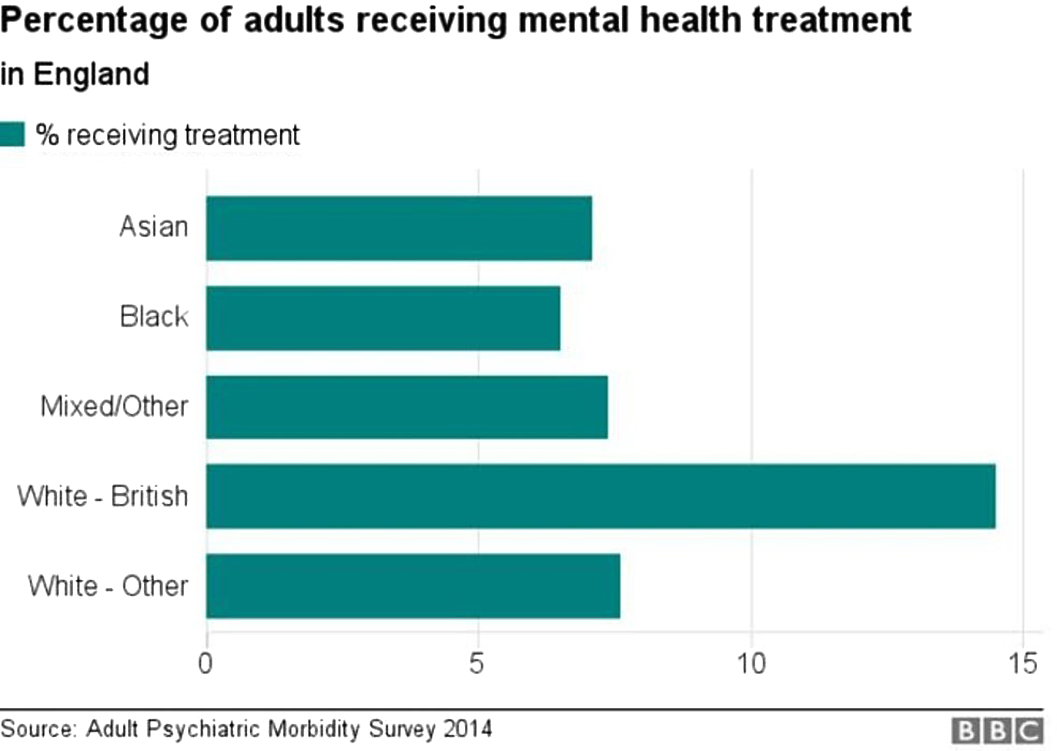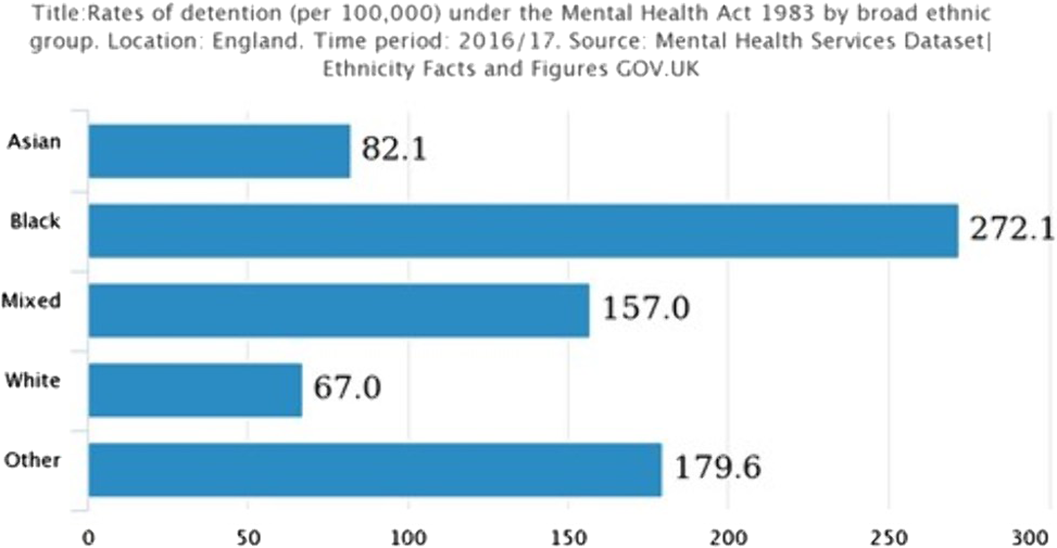No CrossRef data available.
Article contents
Does culture affect How Mental Health Is Treated And Diagnosed- What Is The Future Of It
Published online by Cambridge University Press: 01 September 2022
Abstract
Culture is used to refer to the aspects of thinking, feeling, and behaviour related to nation, heritage, place of birth and ethnicity. I look at how the cultural context of mental disorders and the cultural context of mental disorders and the challenges of addressing ethnic diversity in psychiatric services because there is an over-representation of black people detained under the MHA.
My aim is to understand what current data shows and use this to find a way forward which identify issues with culture and independently and challenge policies, services systems and address culture in clinical practice to provide culture complement care.


. research on rates of detention
The MHA acts tells us POC are 4 times more likely to be detained, arrested under 136 twice as much, and are 8 times as likely to be put on CTOS. 40% of black people will more likely asses care through the police system. (mind.org, Uk) This further shows us just how unrepresented POCs are when it comes to their diagnosis, treatment, and care, especially compared to their white counterparts.
In conclusion regulatory bodies and clinicians have to work towards understanding and identifying the reasons for these disparities and then implementing measures to address this. Such as putting people of color in higher positions in mental health positions in mental health positions to add diversities, also teaching the staff members and other people in high positions of power how much culture really impacts mental health, culturally appropriate advocacy, and improving research done.
No significant relationships.
Keywords
- Type
- Abstract
- Information
- European Psychiatry , Volume 65 , Special Issue S1: Abstracts of the 30th European Congress of Psychiatry , June 2022 , pp. S136
- Creative Commons
- This is an Open Access article, distributed under the terms of the Creative Commons Attribution licence (http://creativecommons.org/licenses/by/4.0/), which permits unrestricted re-use, distribution, and reproduction in any medium, provided the original work is properly cited.
- Copyright
- © The Author(s), 2022. Published by Cambridge University Press on behalf of the European Psychiatric Association



Comments
No Comments have been published for this article.